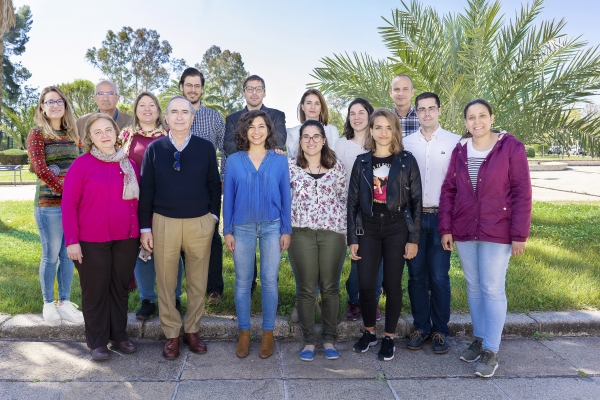There is artisanal food that has travelled in time via recipes that have been passed down from generation to generation, from one mouth to another, like a family heirloom. On many occasions, these products have become a distinguishing feature in towns and regions, spreading the name of their region all over the world and attracting tourists who want to taste the product of the land. However, in these traditional products’ round trip journeys, they need to have food safety as their passport.
Generally speaking, these products are usually made in small factories, with little machinery and where there still are not optimized processes as far as quality and food safety protocol in comparison with those of large companies. The need to implement these systems to guarantee that these foods not only have organoleptic quality but also that they are safe to consume is what brought about the European project called ‘ArtisaneFood - Innovative Bio-interventions and Risk Modelling
Approaches for Ensuring Microbial Safety and Quality of Mediterranean Artisanal Fermented Foods’. This project seeks to develop strategies that ensure food safety in two kinds of products: cured raw meat (dried sausages) and dairy products (aged cheese).
This project, funded by a PRIMA grant, is being coordinated by the Polytechnic Institute of Bragança (Portugal) and has research institutes from the following countries participating: Italy, France, Greece, Morocco, Tunisia, Algeria and Spain. The Food Science Hygiene (abbreviated to HIBRO in Spanish) research group at the Department of Food Science and Technology at the University of Cordoba, is working on this project with researcher Antonio Valero as the coordinator. Valero believes that “it will help companies to show that their products are safe, providing a scientific foundation for this claim”.
The project brings together four main lines of action in order to achieve its aims. In the first place, it carries out a detailed study on the making processes by visiting the companies, with the aim to gather all the information and possible characteristics of a product and the environment in which it is made. In this way, they can characterize the ways that tend to keep disease-producing microorganisms from developing in these kinds of products.
The results will allow for developing mathematical models that help to predict what will happen when making and storing the product, as well as what will help the companies make decisions regarding the best ways to make and store their products. The companies will also be able to find out the shelf life of their products.
To make the day-to-day management easier, all this information and all these models will turn into computer software so workers in these industries will have an easy decision making tool at their fingertips.
Currently, the UCO research group is looking into the processes that these products undergo in artisanal factories in several Andalusian provinces, working in partnership with the companies so that the project’s results favor the artisanal product sector, assigning added value to the products, companies and designations of origin. This makes exportation easier and “adapts to the company’s needs by creating a final product that the company can profit from”. So, artisanal foods can continue to be passed down from generation to generation, but in a safer way.
The ArtiSaneFood project “Innovative Bio-interventions and Risk Modelling Approaches for Ensuring Microbial Safety and Quality of Mediterranean Artisanal Fermented Foods” (PRIMA-S2-2018-PCI2019-103453) is cofunded by the European Union under the PRIMA program and the Ministery of Science, Innovation and Universities of Spain through the National Agency of Investigation under the PRIMA-S2-2018 and PCI2019 call, respectively
This article is part of the communication strategy designed by the International Project Office to divulge the international projects granted to the University of Cordoba.


